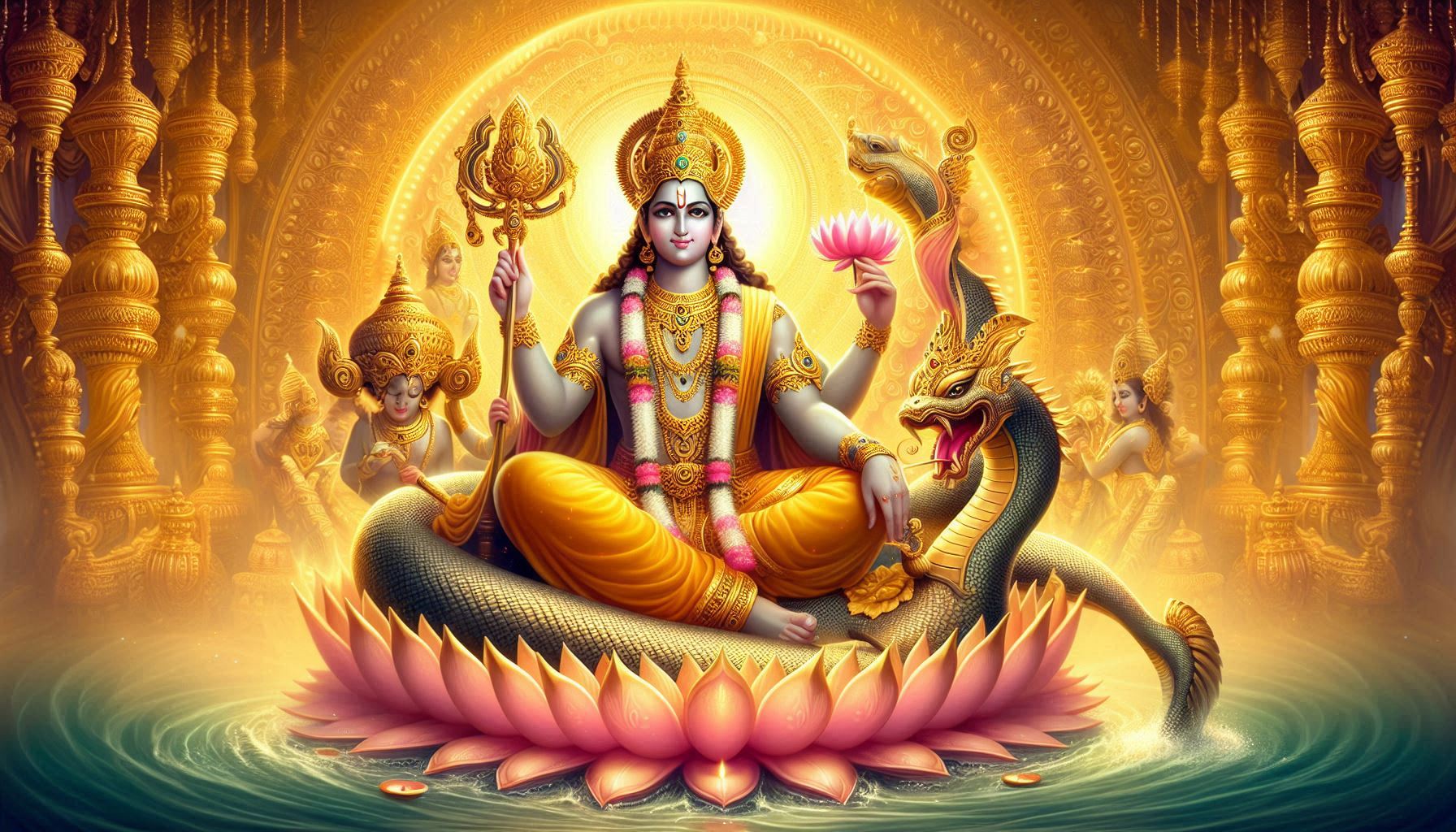
Hari Shayani Ekadashi 2024
Hari Shayani Ekadashi will be celebrated on Wednesday, July 17. It is believed that Hari Shayani Ekadashi, also known as Devshayani Ekadashi, is one of the favorite festivals of Lord Vishnu. This Ekadashi falls on the 11th day of the Shukla Paksha (waxing phase of the moon) in the Hindu calendar and marks the end of the Krishna Paksha (waning phase of the moon) of the month of Jyestha. On this day, special attention is given to worship, fasting, and singing hymns for Lord Vishnu. This Ekadashi holds special significance as it is believed that observing it frees one from all sins and purifies the soul. This festival is considered an important opportunity for religious and spiritual advancement and is celebrated with special devotion and dedication.
Importance of Hari Shayani Ekadashi:
This Ekadashi is considered one of the favorite festivals of Lord Vishnu and is highly regarded for religious merit. Observing this day is believed to earn the grace of God, provide liberation from sins, and purify the soul. Additionally, dedicating this day to devotion and meditation leads to spiritual growth.
The Story of Devshayani Ekadashi – King Bali and Lord Vishnu:
The story of Devshayani Ekadashi, also known as Devauthani Ekadashi, is significant in Hinduism. According to the story, this Ekadashi marks the awakening of Lord Vishnu from his slumber. On this day, Lord Vishnu's awakening is celebrated, and worshipping him bestows his grace.
The story about King Bali tells us that he was a prominent demon king who had gained control over heaven. On this Ekadashi, Lord Vishnu, in his Vamana avatar, approached King Bali and asked for three paces of land during his sacrifice. Bali agreed to his request, and with this, Vishnu pushed him to the underworld, granting him the boon to remain there, and his sacrifice led to receiving the grace of God.
The Story of King Mandhata:
Another story associated with Devshayani Ekadashi involves King Mandhata, a famous king who sought peace and safety for his people from the terror of Narakasura. He devotedly worshipped Lord Vishnu while following the fast of Devshayani Ekadashi. His devotion earned him the grace of Lord Vishnu, enabling him to defeat Narakasura and secure his kingdom. This tale underscores the significance of Devshayani Ekadashi for spiritual growth and achieving peace through devotion.
Devshayani Ekadashi Routine and Traditions:
- Fasting: On Devshayani Ekadashi, people observe a fast, consuming fruits, vegetables, and fasting food instead of grains and pulses.
- Worship and Prayer: Special worship is offered to Lord Vishnu using Tulsi leaves, flowers, lamps, and Naivedya (food offerings).
- Vigil: Night vigils are organized, involving hymn singing, storytelling, and praising the Lord.
- Charity: Donating and helping the needy are considered highly meritorious on this day.
- Special Shraddha: Ancestor worship or Shraddha is also performed on Devshayani Ekadashi.
What Not to Do on Devshayani Ekadashi:
- Consumption of Grains and Pulses: Avoid consuming grains and pulses. Fasting food should be preferred.
- Physical and Mental Labor: Avoid heavy physical work and excessive mental strain. Focus on meditation and contemplation.
- Impure Thoughts and Behavior: Steer clear of impure thoughts and actions. Maintain peace and purity while observing the fast.
- Worship of Lesser Deities: Refrain from worshiping lesser deities or spirits.
Benefits of Devshayani Ekadashi Fast:
- Punya (Merit): Observing Devshayani Ekadashi brings spiritual merit. It is a way to practice Dharma and gain the favor of God.
- Spiritual Growth: Fasting on this Ekadashi brings peace and stability to the mind and soul. Meditation and chanting mantras aid in spiritual growth.
- Physical Health: Fasting also benefits physical health, aiding in natural detoxification.
- Purification of Karma: The fast helps in purifying one's actions, resulting in positive outcomes.
- Community Support: This fast encourages religious discipline, restraint, and tolerance in society, contributing to collective social progress.
















